Our “Sustainable Travel“ series is sponsored by Global Basecamps. Global Basecamps is specialty travel company that helps independent travelers research and book locally owned boutique hotels, off-the-beaten path lodges and multi-day excursions all over the world. Whether hiking the Inca Trail, experiencing a traditional Japanese Ryokan, or relaxing on the beaches of Thailand, Global Basecamps specializes in designing completely customized itineraries to meet each travelers specific priorities and match their travel style.
A short flight or train journey from many European destinations, the vibrant gateway to Africa is not only easily accessible and excellent value for money, but it’s home to some of the most varied scenery in the world with mountains, desert, and beaches all within a day trip of the cities. Earning acclaim for its recent preservation and conservation efforts, and home to a burgeoning roster of eco-friendly activities and eco-lodges, Morocco makes for a surprising addition to eco-conscious itinerary.
What to see
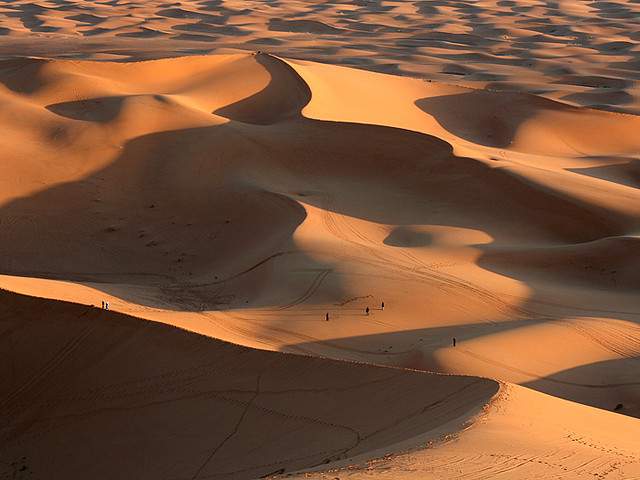
With the vast undulating dunes of the Sahara desert, the towering peaks of the High Atlas Mountains, and stretches of soft-sand beaches, Morocco is a country perfectly formed for eco-friendly travel. Most travelers start their journeys in the imperial cities of Fez, Marrakech, and Meknes, but with such a variety of natural scenery close by, there’s little excuse for not exploring further affield.
The Atlas and Rif mountain ranges harbor rugged landscapes dotted with traditional Berber villages, hidden caves, and rushing waterfalls (don’t miss the famous Cascades d’Ouzoud Waterfall), and the desert offers wonders like the towering Erg Chebbi Dunes and the opportunity to sleep under the stars in a nomadic encampment.
What to do
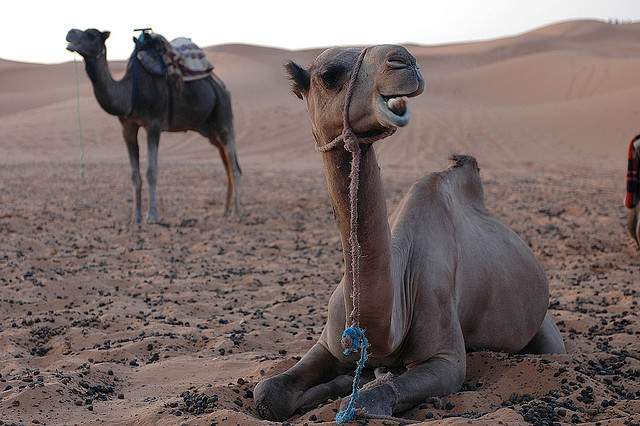
There are plenty of city sights to explore, but nature enthusiasts will be more suited to escaping the hustle and bustle of the chaotic cities and heading out to explore the wilderness. Camel trekking in the desert, hiking or climbing in the mountains, and mountain biking are all popular activities, and there’s an abundance of routes for all abilities. For something a little different, hot air balloon trips, horseback riding tours, and paragliding make environmentally-friendly alternatives to the popular 4WD tours and are often run by local operators.
If lounging on a beach is more appealing, take advantage of the impressive Atlantic coastline, where a number of eco-friendly water sports are gaining popularity – windsurfing, kite surfing, and surfing are all frequent pastimes. And once you’ve thoroughly exhausted your energy reserves, head to a local hamam, where you can recover and recoup while saving on your hotel water usage.
Check out our adventure trips in Morocco
Where to Stay
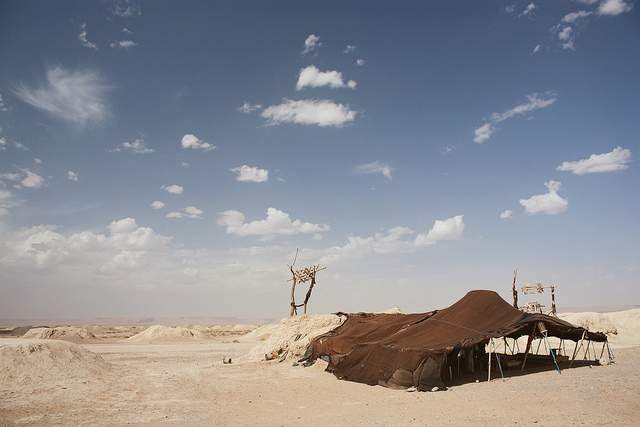
Despite the prevalent package resorts, Morocco has an abundance of hotels and hostels spanning every budget. Those concerned with travelling sustainably might prefer to stay at a family-run riad (guesthouse), where they’ll not only get an authentic insight into traditional Moroccan life, but help support the local community and encourage cultural exchange.
Those looking for something a little more luxurious can take advantage of the eco lodges springing up, many housed in restored casbahs at the foothills of the mountains – try the Atlas Kasbah Ecolodge or the Kasbah du Toubkal, both in the Atlas Mountains. Alternatively, the most eco-friendly accommodation option is to camp out, and with soaring temperatures and stretches of stunning countryside, the country lends itself to sleeping beneath the stars – for the full experience, visit a Bedouin encampment in the Sahara.
Find a hostel in Morocco
What to eat
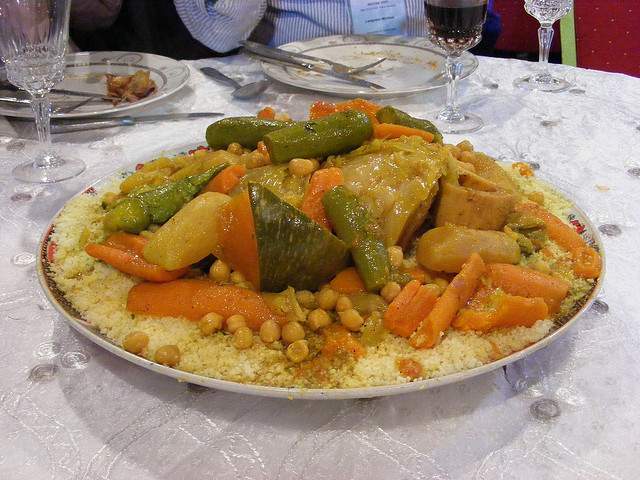
Nothing is more eco-friendly than buying local, and Moroccan street cuisine is some of the world’s best. Skip the fancy restaurants and get a local recommendation for the best place to sample a hearty tagine (traditional local stews), or if you really want to get in touch with local cuisine, take a cooking class – many local chefs are opening their doors to tourists and unveiling the art of perfectly fluffy cous cous and delicate spice mixes.
Don’t forget to try the traditional mint tea, too, heaped with sugar – if you’re lucky you’ll be invited to drink tea with the locals, or else look out for the bustling teahouses where you can sip away secure in the knowledge that you’re supporting local proprietors.
What to buy
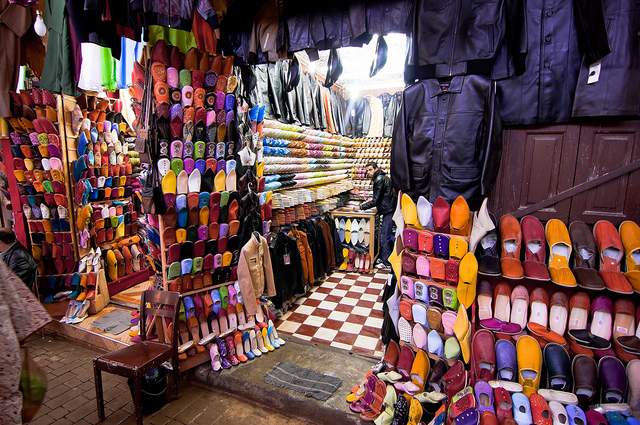
Whether you’re looking for colourful hand-woven carpets, artfully chiselled leather goods, or suitably distinctive souvenirs, pass over the plush souvenir stores in favour of exploring the souks – the heart of Morocco’s material production. Venture into the maze of streets encircling Marrakech’s Djemma el Fna medina (city square), and you’ll be able to peek into metal and wood workshops, sniff the leather hides dripping with dye, and watch handicrafts being made up before your eyes. Some of the most unique buys include local spices and herbal ointments, but make sure you check import regulations of your home country before you attempt to take them through customs. The artisans love to bargain, but remember to settle on a fair price – once you’ve seen the effort that goes into making each item, you might be persuaded to part with a few more dollars.
Read more about ecotourism around the world:
- 10 of the World’s Best City Walks
- 6 Of the World’s Craziest and Most Challenging Bike Rides
- 10 Festivals that Celebrate Local Produce
- 8 of the Best Places to Camp Around the World
- 7 Sustainable Ways to Dive into Thai Culture
- How to Plan an Eco-Friendly RTW Trip: 9 Destinations to Go Green
- 6 Things You Didn’t Know About Ecotourism
- Eco Friendly Travel: 6 Easy Ways to Directly Benefit Your Destination
Shifting panoramas, in-your-face markets, and a unique history blending Ancient Roman, Muslim, Bedouin and European cultures. There are few places on the planet that surprise the senses as well as Morocco. Global Basecamps specializes in eco travel to many destinations, and Morocco is among our favorite. Check out our review of Atlas Kasbah Ecolodge, and let some of our sample itineraries inspire your personal adventure in this fascinating country.
Photo credits: scottroberts, Robbie’s Photo art, john hope14, jcraveiro, Zanthia

